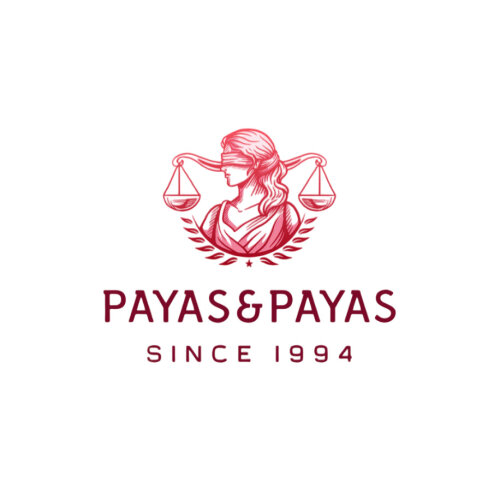Best Reinsurance Lawyers in Turkey
Share your needs with us, get contacted by law firms.
Free. Takes 2 min.
Or refine your search by selecting a city:
List of the best lawyers in Turkey
About Reinsurance Law in Turkey
Reinsurance in Turkey involves the practice of insurance companies transferring portions of their risk portfolios to other parties to mitigate potential losses. This risk-sharing mechanism ensures greater financial stability in the insurance sector. Turkey's reinsurance sector is growing in significance due to increased global interconnectedness and domestic economic activities requiring enhanced risk management strategies. The legal framework governing reinsurance is designed to ensure that both local and international reinsurers meet specific standards and operate within a regulated environment to protect stakeholders.
Why You May Need a Lawyer
There are several circumstances where individuals or businesses might require legal assistance in the field of reinsurance in Turkey:
- Contract Drafting and Review: Ensuring that reinsurance contracts comply with local regulations and meet the business's needs.
- Claims Disputes: Navigating disagreements over claim settlements between insurers and reinsurers.
- Compliance Issues: Understanding and adhering to local and international reinsurance laws and standards.
- Litigation: Representing clients in legal disputes involving reinsurance agreements or claims.
- Regulatory Guidance: Advising on proper registration and licensing requirements for operating as a reinsurer in Turkey.
Local Laws Overview
Reinsurance in Turkey is primarily regulated by the Insurance Law No. 5684, alongside related legislation and regulations promulgated by the Insurance and Private Pension Regulation and Supervision Agency (IPRSA). Key aspects include:
- Licensing: Reinsurers must obtain proper licensing to operate legally within Turkey.
- Capital Requirements: There are stringent capital adequacy requirements to ensure that reinsurers can cover potential liabilities.
- Contractual Clarity: Reinsurance agreements must be clear and precise to prevent disputes and ensure enforceability.
- Reporting Obligations: Reinsurers must regularly submit detailed reports of their operations to regulatory bodies.
Frequently Asked Questions
What is reinsurance, and how does it differ from insurance?
Reinsurance is insurance for insurers. It involves transferring portions of an insurer’s risk portfolio to other parties to lessen the potential impact of significant claims. Insurance involves direct risk coverage for individuals or businesses, while reinsurance provides risk coverage for insurers.
Who regulates reinsurance activities in Turkey?
The Insurance and Private Pension Regulation and Supervision Agency (IPRSA) oversees the regulation and supervision of reinsurance activities in Turkey.
What types of reinsurance contracts are common in Turkey?
Proportional and non-proportional contracts are common, including treaties like quota share, surplus, excess of loss, and stop-loss contracts.
Is a local presence required to provide reinsurance in Turkey?
International reinsurers may need to establish a local presence or partnership to engage in reinsurance activities within Turkey, subject to certain regulatory requirements.
Are reinsurance premiums subject to any taxes in Turkey?
Yes, reinsurance transactions can be subject to VAT and other applicable taxes, depending on the nature and structure of the contract.
How is reinsurance dispute resolution handled in Turkey?
Disputes may be resolved through arbitration, litigation, or mutually agreeable alternative dispute resolution methods specified in the reinsurance contract.
Are there specific data protection requirements for reinsurers in Turkey?
Reinsurers must comply with Turkey's data protection laws, including the Personal Data Protection Law No. 6698, ensuring that customer information is appropriately handled and secured.
What are the solvency requirements for reinsurers operating in Turkey?
Reinsurers must adhere to specific solvency requirements ensuring they have sufficient capital reserves to meet potential claims liabilities.
Can Turkish organizations purchase reinsurance from foreign reinsurers?
Yes, Turkish organizations can seek reinsurance from foreign entities, provided they comply with the local regulatory framework and any international agreements.
What risks are typically transferred through reinsurance in Turkey?
Common risks include natural catastrophes, large-scale industrial hazards, and specialty risks associated with sectors like aviation, marine, and energy.
Additional Resources
For those seeking further information or assistance in the field of reinsurance, consider the following resources:
- The Insurance and Private Pension Regulation and Supervision Agency (IPRSA): The primary regulatory body for insurance and reinsurance activities.
- The Turkish Insurance Institute: Offers training and publications on reinsurance and insurance innovations.
- Turkish Reinsurance Companies: Local companies can provide insight into national practices and partnerships.
Next Steps
If you require legal assistance in reinsurance matters, consider the following steps:
- Consult with a Specialist: Find a lawyer or law firm specializing in insurance and reinsurance law in Turkey.
- Prepare Documentation: Gather all relevant documents, contracts, and correspondences for review.
- Schedule a Legal Consultation: Discuss your case or concerns with a legal expert to receive tailored advice.
- Stay Informed: Keep up to date with any legislative changes in Turkey’s insurance and reinsurance sector.
Lawzana helps you find the best lawyers and law firms in Turkey through a curated and pre-screened list of qualified legal professionals. Our platform offers rankings and detailed profiles of attorneys and law firms, allowing you to compare based on practice areas, including Reinsurance, experience, and client feedback.
Each profile includes a description of the firm's areas of practice, client reviews, team members and partners, year of establishment, spoken languages, office locations, contact information, social media presence, and any published articles or resources. Most firms on our platform speak English and are experienced in both local and international legal matters.
Get a quote from top-rated law firms in Turkey — quickly, securely, and without unnecessary hassle.
Disclaimer:
The information provided on this page is for general informational purposes only and does not constitute legal advice. While we strive to ensure the accuracy and relevance of the content, legal information may change over time, and interpretations of the law can vary. You should always consult with a qualified legal professional for advice specific to your situation.
We disclaim all liability for actions taken or not taken based on the content of this page. If you believe any information is incorrect or outdated, please contact us, and we will review and update it where appropriate.
Browse reinsurance law firms by city in Turkey
Refine your search by selecting a city.

















